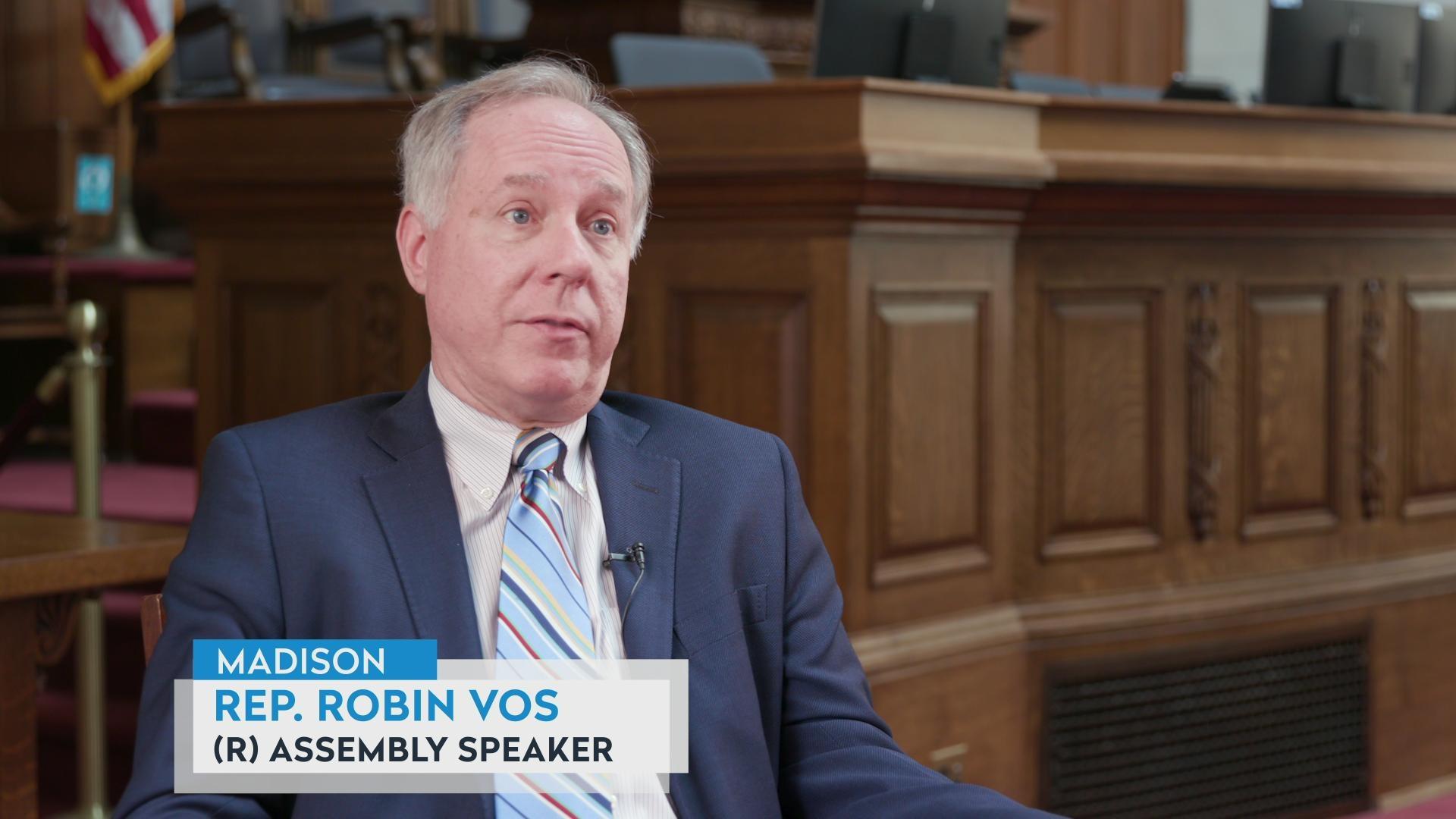Frederica Freyberg:
Wisconsin continues to be at the epicenter of electoral politics. The U.S. Supreme Court weighing in on our voting maps, and Donald Trump weighing in on the intractable Michael Gableman investigation. It’s another day at the Capitol. That’s where Wisconsin Public Radio Capitol Bureau Chief Shawn Johnson is. He joins us now. Hi, Shawn.
Shawn Johnson:
Hi Frederica.
Frederica Freyberg:
So Legislative Republicans want the U.S. Supreme Court to take the Wisconsin redistricting case, the case where the state high court approved the “least changed” Evers’ maps. What’s the status of that request to the U.S. Supreme Court and the stay that the Republicans asked for?
Shawn Johnson:
The status as of right now is the U.S. Supreme Court told everybody, file responses to this by Friday, March 11th, and that’s all we know at this point. The U.S. Supreme Court gave a deadline of next Tuesday for another challenge of the state’s congressional map that was brought by Republicans. So we’re kind of waiting to see what happens next. It’s the U.S. Supreme Court, they set their own timelines although we do have some election-related timelines coming up in Wisconsin, namely the April 15th date when candidates begin circulating nomination petitions.
Frederica Freyberg:
Yes, coming right up. But what’s your understanding of how likely it is for the U.S. high court to take the case at all?
Shawn Johnson:
So they could, but my understanding is it’s likely that they’ll leave the map alone. It’s a state map decided by the state’s highest court, and so that’s one argument that would leave the U.S. Supreme Court to just kind of stay out of this. But they might, on the grounds of they want to get involved in a Voting Rights Act challenge. It’s up to the Supreme Court to decide which cases it takes. They’re already getting involved in a redistricting case out of Alabama, related to how redistricting and the Voting Rights Act, you know, work together, and so it could be that the court will hear Wisconsin’s case eventually. I guess the immediate question is whether they decide to take it right away and toss out Wisconsin’s map.
Frederica Freyberg:
Right, that is the question, like which maps might be in place for this year’s elections.
Shawn Johnson:
It seems like there’s a decent chance that you could have Wisconsin’s map embraced by the Wisconsin Supreme Court as drawn by Tony Evers under these “least changes” guidelines in place for 2022, even if the U.S. Supreme Court decides to hear this challenge. But you know, they’re the court so they can decide.
Frederica Freyberg:
Right. They are the big ones. They get to decide. Meanwhile, Assembly Speaker Robin Vos this week extended Michael Gableman’s contract to continue investigating the 2020 election, to which former president Trump responded, “In addition to announcing they will stay in session and take action to get rid of ERIC and the Wisconsin Elections Commission, I would imagine that there can only be a decertification of electors.” So my question is, really? What did Vos say about all of that?
Shawn Johnson:
So there’s a lot to unpack in that statement. There are four assertions in there that are either false or they need clarification. One, this idea of decertification is the big one. And there is — for one, there’s not support in the existing legislature to do that, which is to basically erase Wisconsin’s election results for the 2020 presidential election. Also, the legislature’s non-partisan attorney saying it’s not legally possible, which is a view that’s widely held in the election law community. If you go through the rest of the former president’s statement, as far as we know, the legislature held its last session day of the year this week. They can always come back, they’re the legislature, but they’re not planning on it. And as far as ERIC, the electronic registration information center, a multi-state database of government records, that is something that was initiated by Republican lawmakers under former Republican governor Scott Walker. They have not talked about ending it. Republican candidates for governor have talked about getting rid of the Wisconsin Elections Commission so that’s something that could happen but it’s not going to happen this year. GOP leaders in the legislature said they don’t want to do that. Governor Tony Evers definitely doesn’t want to do it.
Frederica Freyberg:
So former president Trump may be just a little bit behind in his information. But I wanted to get to this, too, quickly. This week, Governor Evers’ special session to give tax refunds and boost school funding went exactly where?
Shawn Johnson:
It went exactly where many Evers’ special sessions have gone, which is, gaveled in, gaveled out and done. When you’re the governor, you can call a special session of the legislature, but what that means often isn’t a lot. GOP lawmakers basically officially opened the session, officially closed it, and now it’s an issue for campaign season, where you’re going to have the governor saying, hey, I want to give you these $150 tax rebates, only ones standing in the way are Republican lawmakers. Of course four years ago, it was a different story when there was a Republican governor. They did approve child tax rebates, but they’re not going to do that this year.
Frederica Freyberg:
They’d like to go ahead and do that after the election.
Shawn Johnson:
They would like to do it — something with a governor from a different party, but you know, that definitely remains to be seen in this November’s election.
Frederica Freyberg:
All right. Shawn Johnson, we’ll leave it there. Thank you very much for the roundup and the real-time fact check. Appreciate it.
Shawn Johnson:
You’re welcome.
Search Episodes
News Stories from PBS Wisconsin

Donate to sign up. Activate and sign in to Passport. It's that easy to help PBS Wisconsin serve your community through media that educates, inspires, and entertains.
Make your membership gift today
Only for new users: Activate Passport using your code or email address
Already a member?
Look up my account
Need some help? Go to FAQ or visit PBS Passport Help
Need help accessing PBS Wisconsin anywhere?

Online Access | Platform & Device Access | Cable or Satellite Access | Over-The-Air Access
Visit Access Guide
Need help accessing PBS Wisconsin anywhere?

Visit Our
Live TV Access Guide
Online AccessPlatform & Device Access
Cable or Satellite Access
Over-The-Air Access
Visit Access Guide
 Passport
Passport


















Follow Us